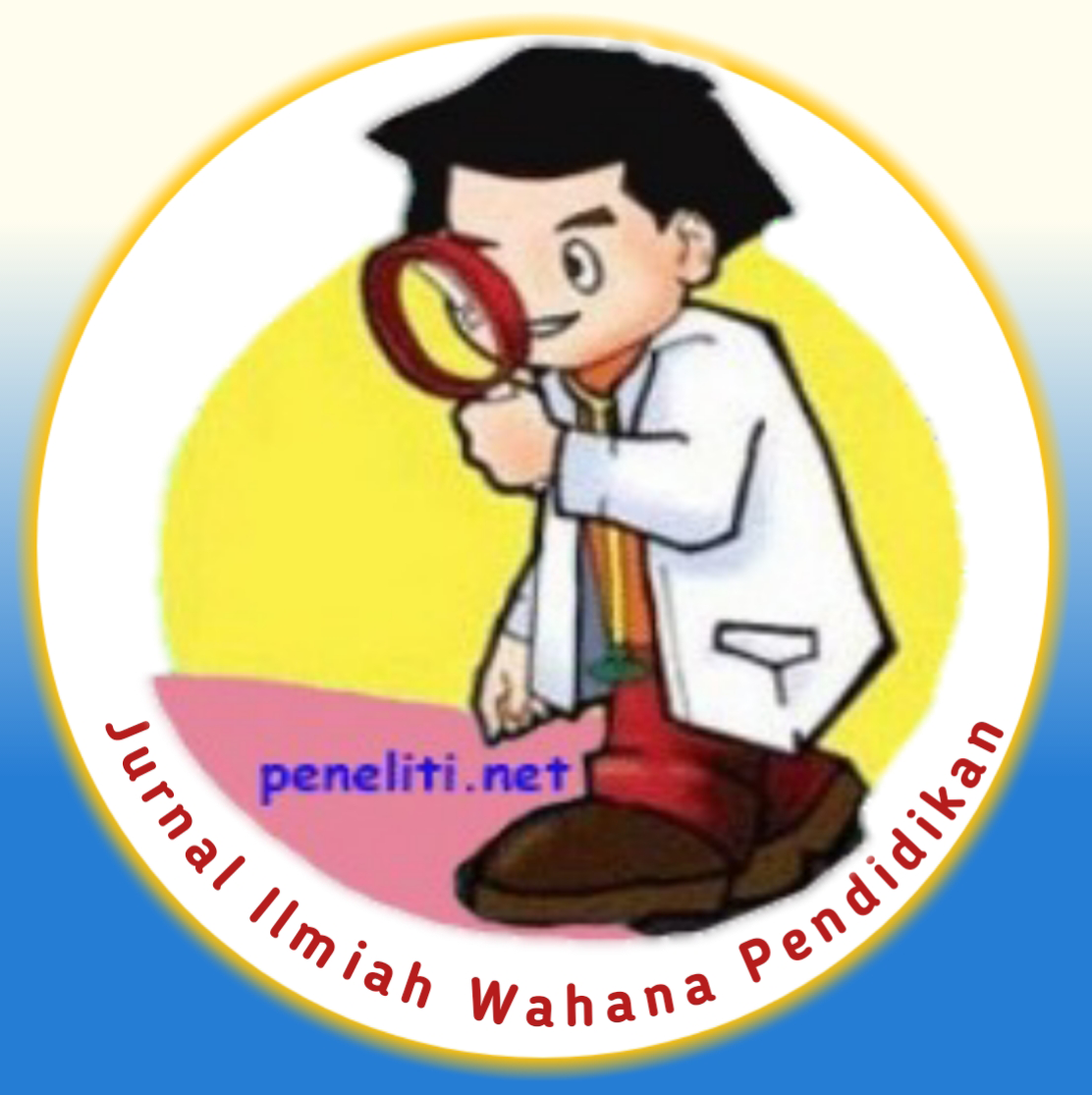Penerapan Model Pembelajaran Project Based Learning Terhadap Problem Solving Skills Peserta Didik
Abstract
Educators and students are the two main components that determine the success of the teaching and learning process in the education unit. The success of the teaching and learning process can be perceived from the increase of students’ ability which is not only discerned from measuring academic values and knowledge but also includes other components, such as skills, talents, critical thinking skills and problem solving. Basically, education aims to make students ready to face the world of globalization which is full of challenges in the 4.0 revolution era and be able to answer challenges appropriately both at the national and international levels. The purpose of this research is to use a systematic method to review the literature on applying project-based learning models to students' problem-solving skills. This research uses a qualitative descriptive approach with a literature study. Data is collected by reviewing accredited articles and journals from the Google Scholar website, Publish and Perish apps. The study results show that the application of the project-based learning model to students can make the learning process for students effective and efficient. Because involving learning in a real and contextual way, it produces student outputs in the form of the ability to solve problems from various specific and general issues within the student's environment
References
Anggraini & Wulandari (2021). Analisis penggunaan Model Pembelajaran Project Based Learning Dalam Peningkatan Keaktifan Siswa. Jurnal Pendidikan Administrasi Perkantoran. Vol. 9, No. 2. https://doi.org/10.26740/jpap.v9n2.p292-299.
Anugraheni, I. (2018). Penerapan Model Pembelajaran Project Based Learning (PJBL) Berbantuan Media Mind Map Untuk Meningkatkan Keaktifan dan Hasil Belajar Siswa Kelas IV SD. Jurnal Guru Kita (JGK), 2(3), 116–125.
Amalia, E., Surya, E., & Syahputra, E. (2017). The effectiveness of using problem based learning (PBL) in mathematics problem solving ability for junior high school students. International Journal of Advance Research and Innovative Ideas in Education, 3(2), 3402-3406.
Araiza-Alba, P., Keane, T., Chen, W. S., & Kaufman, J. (2021). Immersive virtual reality as a tool to learn problem-solving skills. Computers & Education, 164, 104121. https://doi.org/10.1016/j.compedu.2020.104121.
Azizah, & Naniek. (2018). Konsep Belajar Menggunakan Model Project Based Learning. 36–51.
Bouwma-Gearhart, J. L., Ivanovitch, J. D., Aster, E. M., & Bouwma, A. M. (2018). Exploring Postsecondary Biology Educators’ Planning For Teaching To Advance Meaningful Education Improvement Initiatives. Cbe Life Sciences Education, 17(3), 1–12. Https://Doi.Org/10.1187/Cbe.17-06-0101
Dörner, D., & Funke, J. (2017). Complex problem solving: what it is and what it is not. Frontiers in Psychology, 8, 1153.
Hidayati, R., & Wagiran, W. (2020). Implementation of problem-based learning to improve problem-solving skills in vocational high school. Jurnal Pendidikan Vokasi, 10(2), 177-187. https://doi.org/10.21831/jpv.v10i2.31210
Handoko, H. (2022). Dampak Covid-19 Terhadap Kebiasaan Bermain Gadget Pada
Anak Usia Sekolah. Psychocentrum Review, 4(1), 140-148.
Handoko, H., Tolla, B., & Suprihati, Y. (2019). The evaluation of computer-based
national examination system in Indonesia. Ijer-Indonesian Journal Of Educational Review, 6(1).
Hutasuhut, S. (2010). Implementasi Pembelajaran Berbasis Proyek (Project-based Learning) untuk Meningkatkan Motivasi dan Hasil Belajar Mata Kuliah Pengantar Ekonomi Pembangunan pada Jurusan Manajemen FE UNIMED. Jurnal Pendidikan Ekonomi dan Bisnis, vol. 2, no. 01.
Nafia’ah, N. (2020). Meta-Analisis Pengaruh Model Pembelajaran Project Based Learning Terhadap Hasil Belajar Siswa Pada Mata Pelajaran IPA Sekolah Dasar. Jurnal Ilmiah Pendidikan Profesi Guru, 3(3), 408. https://doi.org/10.23887/jippg.v3i3.28081
Ngalimun, dkk. (2013). Perkembangan dan Pengembangan Kreativitas. Yogyakarta: Aswaja Pressindo.
Peraturan Menteri Pendidikan Dan Kebudayaan Republik Indonesia Nomor 81A Tahun 2013 Lampiran IV Tentang Implementasi Kurikulum pada Pedoman Umum Pembelajaran.
Rahman, M. M. (2019). 21st Century Skill “Problem Solving”: Defining the Concept. Asian Journal of Interdisciplinary Research, 2(1), 64-74. https://doi.org/10.34256/ajir1917
Tan, S., Zou, L., Wijaya, T., & Dewi, N. (2020). Improving Student Creative Thinking Ability With Problem Based Learning Approach Using Hawgent Dynamic Mathematics Software. Journal on Education, 2(4), 303-312. https://doi.org/10.31004/joe.v2i4.324
Trianto. (2014). Mendesain Model Pembelajaran Inovatif, Progresif dan Kontekstual. Jakarta: Prenadamedia Group.
Sariningsih, R., & Purwasih, R. (2017). Pembelajaran Problem Based Learning Untuk Meningkatkan Kemampuan Pemecahan Masalah Matematis Dan Self Efficacy Mahasiswa Calon Guru. Jnpm (Jurnal Nasional Pendidikan Matematika), 1(1), 163. https://Doi.Org/10.33603/Jnpm.V1i1.275
Sugiyono. (2019). Metode Penelitian Kuantitatif Kualitatif Dan R&D. Bandung: Alfabeta.




